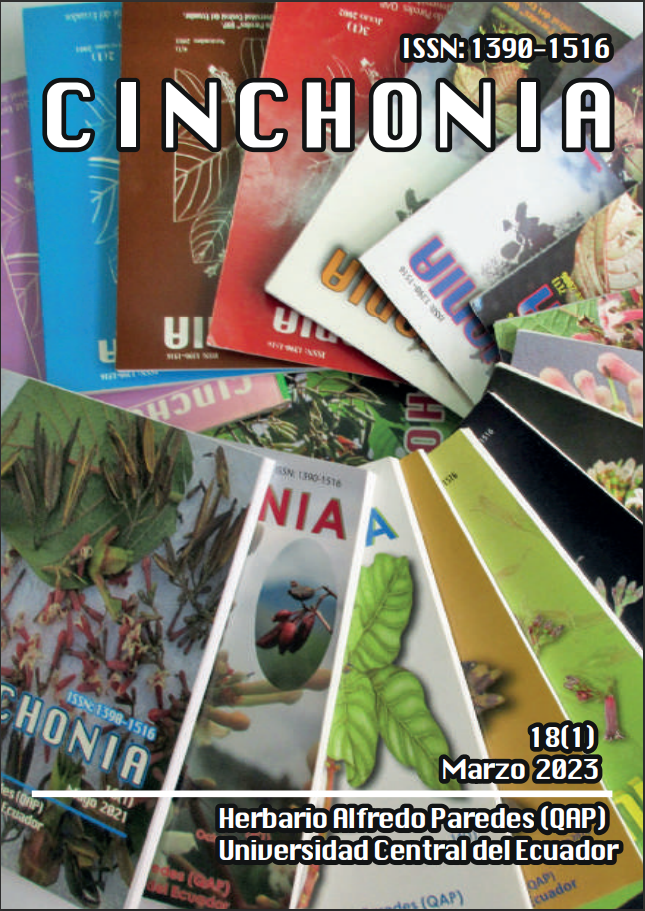Iconography associated with Agave L. (Agavaceae)
Main Article Content
Abstract
Iconography had involved the study, description, classification, and interpretation of an icon by sourcing and correlating textual sources with the evidence of the icon. Studies on Tropical American iconography had remained focused on identifications of ancient drawings, specifically in relation to the plethora of naturalistic expeditions. However, the studies on Agave iconography remain without development. This study was based on premises of iconographic analyses. 18 species were recognized and four morphological styles were identified. Agave americana L. and A. salmiana Otto ex Salm-Dyck were the most common species in the analized iconography. My hope is that this paper will open up new possibilities of research, enjoyment, and understanding in the vast resources of the plant iconography, ancient and recent.
Article Details

This work is licensed under a Creative Commons Attribution-NonCommercial-NoDerivatives 4.0 International License.
References
Afanador Llach, M. J. 2011. Nombrar y
representar: Escritura y naturaleza
en el Códice de la Cruz-Badiano,
Fronteras de la Historia 16:
−41.
Alcina Franch, J. 1982. Arte y
antropología. Alianza Editorial,
S. A., Madrid.
Antei, G. 1997. Flora Columbiae.
Karsten. Tomos I y II. Seguros
Bolívar-OP Gráficas Ltda.,
Bogotá D. C.
Arboleda de Vega, S. & N. Galat de
León. 1993. Especias. Historia,
usos, cultivos y sus mejores
recetas. Editorial Voluntad S. A.,
Bogotá D. C.
Argüello García, P. M. & A. Botiva
Contreras. 2003. El arte rupestre
en Colombia. Revista La Tadeo
: 79–87.
Benítez, F. 2000. El señor maguey. Artes
de México 51: 8–16.
Bonfil Batalla, G. 2019. Cultivos
mesoamericanos. Arqueología
Mexicana 84 (edición especial):
–89.
Bye, R. & E. Linares. 1999. Plantas
medicinales del México
prehispánico. Arqueología
Mexicana 7: 4–13.
Campana Delgado, C. 2015. Iconografía
del pensamiento andino. Fondo
Editorial de la Universidad
Privada Antenor Orrego, Trujillo,
Perú.
Campana Delgado, C. 2019. El mar
y las aguas en la iconografía
andina. Fondo Editorial de la
Universidad Privada Antenor
Orrego, Trujillo, Perú.
Cecchini, T. 2008. Las plantas
medicinales. Editorial De Vecchi
S. A., Barcelona.
Daunay, M. C., E. Jullian, A. Whipkey
& J. Janick. 2007a. Eggplant and
capsicum peppers: Historical texts
and images. Progress in Research
in Capsicum & Eggplant: 13–21.
Warsaw University Life Sciences
Press, Varsovia.
Daunay, M. C., H. Laterrot & J. Janick.
b. Iconography of the
Solanaceae from antiquity to the
xviith century: A rich source of
information on genetic diversity
and uses. Acta Horticulturae 745:
–88.
Daunay, M. C., H. Laterrot & J. Janick.
Iconography and history of
Solanaceae: Antiquity to the 17th
century. Horticultural Reviews
: 1–111.
de Acosta, J. 1590. Historia natural y
moral de las Indias (reimpresión
. Colección “Crónicas de
América”, edición de José Alcina
Franch, Dastin, S. L., Madrid.
De La Sota, E. R. 1982. La taxonomía
y la revolución en las ciencias
biológicas. Monografía nro. 3,
serie de Biología, Secretaría
General de la Organización de los
Estados Americanos, Programa
Regional de Desarrollo Científico
y Tecnólogico, Washington D. C.

